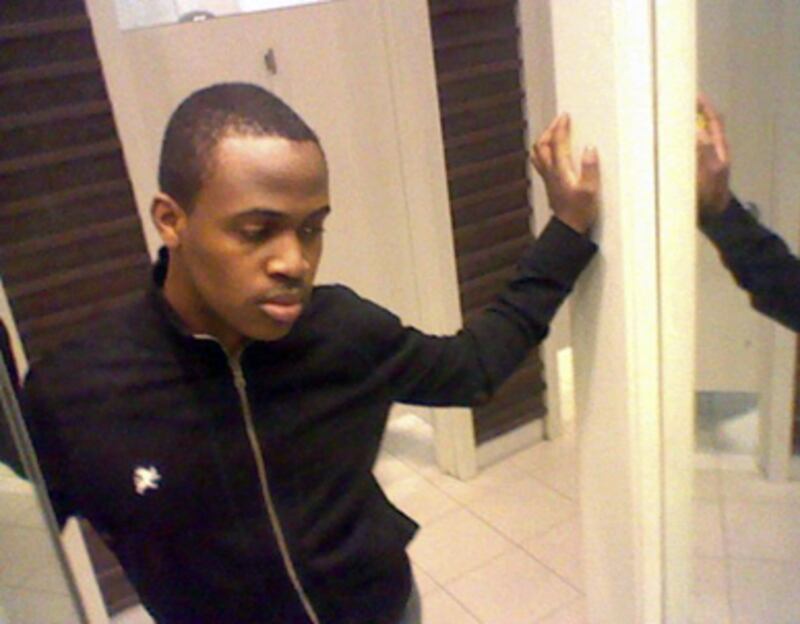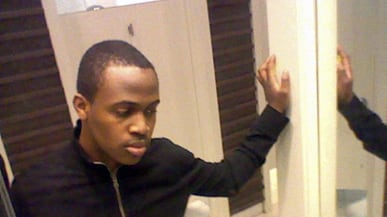Raymond Chase was an outgoing, popular and openly gay teenager who suddenly decided to kill himself last week. Tragic new details on the fifth in an alarming suicide spike.
“I like to laugh, I like to have fun and I’m gay,” plainly states the Facebook bio of Raymond Chase, the Johnson & Wales sophomore who killed himself Wednesday afternoon. Chase’s death marks the fifth in what may come to be known as the September suicides.
On Wednesday afternoon, Chase, 19 years old, wrote a note to his loved ones—filled with praise and deep affection for them, but no explanation for his actions—and proceeded to hang himself in his dorm room. According to the Providence, Rhode Island, police, a standard investigation is open, but will shortly be closed; there is no indication that Chase suffered at the hands of anything but his own demons. His family and friends are reeling from the shock.

Ray, as his friends called him, was just that—“a ray of sunshine,” said his classmate, Ivonne White, also 19 and a sophomore at Johnson & Wales, calling his death “the biggest shock of my life.” The two were best friends at school and spent every moment together, both in their classes as culinary arts majors, and outside of the classroom, just having a good time, often chowing down over nachos, Chase’s favorite.
• The Most Suicidal States• Claire Howorth & Brian Ries: A University's Suicide Shock• Claire Howorth: Was It a Hate Crime?Chase did not seem to struggle with his gay identity—he was out to his friends and family, and to a much larger and accepting social circle. White described him as the life of the party, loved by many and hated by none; “Straight guys fist-bumped him. Everyone just wanted to be around him,” she said.
“This is something I want to say to everyone about Ray: He was never, ever bullied, and nobody was ever mean to him,” said White, who thinks Chase could have been a comedian he was so funny. Some of the world’s most beloved comedians, of course, are famous for concealing pain and depression with the Teflon of good humor.
White speculates that her friend might have been upset over a crush he had on a straight boy, a good friend, to whom Chase confessed his affection this summer. Though any romantic feelings were unrequited, the crush treated Chase with utter dignity and respect, before and after the admission. Still, Chase seemed haunted by his feelings, staying up until 4 a.m. the night before his suicide to talk to his roommate about that crush. It was seemingly just one of those long, late-night talks college kids have with their dear friends; there was no warning bell.
“He was a ‘ray’ of sunshine... Straight guys fist-bumped him. Everyone just wanted to be around him.”
Though White cautions against lumping Chase in with the other four, who were apparently tormented, the five young men in these high-profile suicide cases have one thing in common: homosexuality, either in experience, or as defined by themselves. It is still unclear whether Tyler Clementi, the Rutgers student, was decidedly out, but he had been targeted as “gay” by his roommate, who videotaped him in a sexual encounter with another male. Chase, the oldest of the tragic group, may have been one of the most supported and open, but the alarming rash indicates the struggle young people still face in coming to terms with their sexuality—even in a post- Will & Grace, post-hate-crime legislation, post-Matthew Shepard era.
“In the past, gay people only came out when they were intellectually steeled for the experience. Now half the world insists that ‘gay’ is no big deal, and the other half harbors the same queasy intolerance of the old days,” said the writer David McConnell, who just finished a nonfiction book titled Gay Panic, about six separate cases of straight men who murdered gay men. “It's a particularly confusing and dangerous time for kids. They're yanked two ways.”
Sharon Stapel, director of New York’s Anti-Violence Project, said, “This is not a gay issue—this is everyone’s issue. One thing everyone can do immediately is just stop it. Stop it with the gay jokes, stop with the bashing, stop with the fear. It’s not a complex solution, and it’s something people can do right away.”
As for Chase, said White, “may we all let him rest in peace.”
Claire Howorth is the Arts editor at The Daily Beast.






